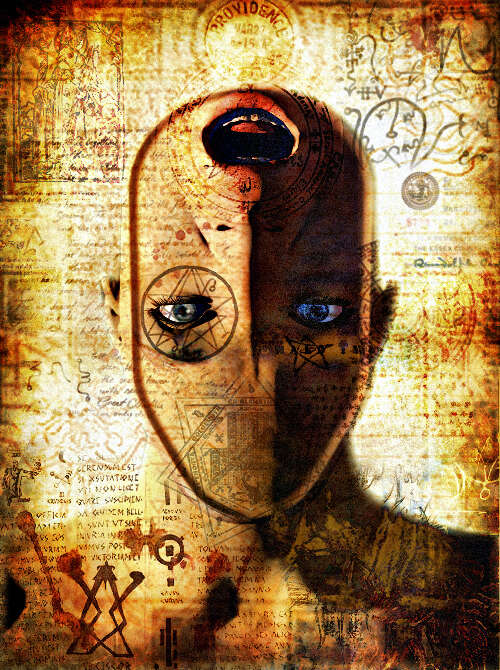Most links in this article are of Dutch documentaries. You can find several English documentaries as well on YouTube about the subject. Reading the text without watching the links is nevertheless also worth your time.
When I was in my aggression at the end of my clinical therapy, I was very ‘progressive’. I wanted to discuss everything (I still do), and was constantly angry: anything went. It was a reflection of my inner state. You have to imagine that I constantly had aggressive fantasies and in this way I could keep the violent effect that people had on me in my youth at bay. Granted, I had learned to manage the aggressive feelings through rigorous behavioral therapy that balanced the behavior, so you can debate whether it was really an immoral state. But it was really water and fire united in one person. Yet now, after all these years, I don’t think I was really progressive. Sure, I got a kick out of progress because I wanted to get rid of suffering in my environment as quickly as possible (I’ve always retained that trait), but I allowed myself and others to do many things which are actually not moral. An example, of course, is aggressive fantasies that destroy real intimacy, but also things like abortion and euthanasia. Now that I am a little older, and I have purged myself of these aggressive fantasies, I also think about abortion and euthanasia a little differently. I now see that both are immoral to do. The question then, of course, is whether you are also in favor of banning them. If the state served as a merciful God, judging justly on various cases, then it would be something else. But the state proves time and again that they are very bad at judging justly, and that makes sense, because they are just the same people as anyone else, and we are all influenced by the Evil Forces unleashed on humanity.
The Expertise Center for Euthanasia (formerly End of Life Clinic) here in the Netherlands is a place where euthanasia is practiced. When I was in a process of deterioration, and it was not yet clear how far I could deteriorate and whether it would ever become unbearable suffering, I kept this in the back of my mind for a long time as an option. Sometimes people say that God always makes sure that what you have to face is bearable, but I don’t think this is true. Real extremes exist. The worse the start of your life has been (and these can be inhuman situations), the more likely you are to end your life with a big bang. People can’t imagine at all what it’s like to feel so incredibly bad that all you want to do is destroy yourself. Something like the Expertise Center for Euthanasia then gives you an option to end life in a “merciful” way. This is immoral on the one hand, but on the other hand more moral than what some doctors indicate: that they think that if you want to end your life, you have to take responsibility for this act yourself. While it is not always your own fault that you have ended up in this state.
Sometimes, of course, there are still many options for treatment, and a person is totally unaware of this, but sometimes the person also knows better than the doctors, because he or she knows himself better than anyone else. But the question is, shouldn’t we just take better care of each other? Just because one immoral action has been committed against someone in his or her past (trauma) does not necessarily mean that we should then be tempted by this person to commit another immoral action (euthanasia). But if a mistake has made a life unbearable, then it becomes seriously more difficult to stay with that.
Normally I think it is good if people do not terminate their course of illness prematurely, but continue to live it through or endure, for them to become aware enough to choose a different path in a later life. There are tools that can be devised to ease the suffering. But it is important not to skip anything in this process. Getting euthanasia before the going gets tough is the “easy” way out, although I do understand it, and have great compassion for those in such a state. In cases where the person chooses it voluntarily, I would not forbid it, but I would not always grant it either. I’ve also seen this example of a demented woman on whom euthanasia was done when she didn’t confirm it at all (she had filled out living wills before she became demented), and you can argue about whether it’s not just murder. I’m not in favor of doing euthanasia on demented patients either. Sometimes we are too unwilling to provide them with really good and loving assistance. Attention makes people thrive, but many languish in their old days. No one looks after them. Let’s focus on that! There are several documentaries (example) that highlight distressing cases and the focus is often on the fact that people should be at their beck and call. That that is a good thing. But I have my reservations about this.
In this video we see the same mother as in the previous link at the end saying that her daughter’s wishes (who had several personality disorders) were not taken seriously because she is only 20 years old and not yet out of treatment. But apparently she had just been receiving the wrong treatment so far. And I recognize that exactly. Because for some people with personality disorders, the treatment should not be aimed at undoing the personality disorder but should just provide a therapy where the aggression is raised to the head. This is certainly warranted in certain cases, and can greatly increase the quality of life. Just like it did for me before they sent me on to follow-up therapy that I should never have had. Then you will always have a personality disorder, but you will have the best possible quality of life. Much better, than if you don’t have the aggression at your disposal, ‘cause it is an enormous source of power, and it dampens the pain very well. But very often such a therapy is not possible with severe psychiatric patients. And then you often end up in a treatment where they keep on hurting you, to make you “better”. Some patients make jokes about their psychotherapist, “psycho the rapist”, because this hurting really feels like rape and it’s all very banal. You would think that someone especially needs love and a nice environment where they feel comfortable, but no, the mental health services mainly focus on stripping away diagnoses instead of looking at how you feel, and then you end up in such a rape trajectory. An example we see in the documentary of BOOS (which means UPSET/ANGRY) with Robin.
I once lost a good friend to suicide. He often felt bad, he had said, but for the rest he had never felt the care to feel free to talk about it. He also had no idea what kind of treatments were possible for his problem. Because of this he was, in his eyes, forced to take his life by walking on the railroad track. In my opinion he could have easily been helped, especially because he was so young, and it is therefore a great pity that he ended his life in this way. To be at peace with such a decision is actually immoral.
To make up for the evil caused by the Luciferian entities, the benign Angels created diseases, according to Rudolf Steiner. This has created extreme situations. The remedy for this is that man learns to be in balance with the Satanic entities and the Antichrist entities, and to allow and experience his own emotions and thus seeks freedom. Who cannot feel all his emotions in a balanced way, cannot heal. And becomes ill! Illnesses have a function, and are therefore not mistakes. But many people are not so strong to take responsibility for their own suffering, but that is what we should ultimately strive for, I think. But that takes time. In some cases, “others” are really to blame for your condition and that condition is so extreme and someone is actually already dead inside, that I do have compassion for the decision to end someone’s life, if it is of their own free will. The sixth commandment is: thou shalt not kill. So doctors do need to realize that they are going against God’s order when they provide euthanasia. Some are happy to take this risk to put someone out of their misery. That is then on their account.
Even with physical illnesses, for example cancer, a patient may have no options at first glance but can sometimes find the solution with alternative doctors. The regular health care system is incredibly condescending to alternative doctors, but is itself unaware that they have not integrated the human spirit into regular medicine (all the different fields are fragmented, and the integral basis is not known to them), and that the spirit is at the source of many diseases, including cancer. They feel very important when they reassure people that cancer is not caused by “negative thinking” (you see that passing on TV sometimes), but that is an oversimplification of what alternative doctors say. In my opinion it comes from a too low voltage between the cells and their environment. So a blockage in the experience of charge and thus emotion. How the charge is distributed in this cell is a micro representation of how the charge is distributed in the mind on a macro level. This works like nested hierarchies.
My aunt had cancer years ago, and she chose not to be treated. That’s another extreme. She wanted to experience how God intended it to be for her. Well, I accidentally saw her when she had died and was lying in her coffin. And was horrified. That was inhuman. I was just a young guy. She really suffered terribly and you could see that blatantly. (Out of respect for her, I won’t describe the details). But she chose to do that! You could say that she allowed the disease to work upon her very ‘well’, and that is admirable. Precisely by experiencing pain, we can gain insight into what we need to do to prevent it from happening next time, because most illnesses have a psychological/emotional cause and come from an imbalance in the psyche, from the boundless experience of emotions, or precisely from blockages in the experience of emotions.
Allowing euthanasia when it is actually morally wrong is what is happening now. You can debate whether it can always be maintained that morality is always objective. For the majority of people, it certainly is not. Moral relativism is part of the Satanic, and Satan disguises himself as an angel of light. Perhaps one that makes ending a life a heroic act? So we should always strive for truth and an objective morality, but in a world with such extremes, that is not sustainable for many people. Everyone is responsible for their own mistakes and we can let God judge them. The attitude that many believers take, that you should disapprove of such things as aggression and euthanasia in all cases and allow as much suffering as possible to exist in the world, is no more the whole truth, than the attitude that many non-believers take, to always approve. The truth, as usual, lies in the middle. But to let man judge this is certainly asking for trouble. It is therefore important to highlight both the distressing cases of euthanasias that are not given (this is already done a great deal in the media) and the abuses of euthanasias that are wrongfully given.
Euthanasia: death on demand…. Hopefully we will not go there, because I absolutely disapprove. Basically, a person does not determine when he dies. God gets you when the time is right. The more pain you take on, the more you balance your karma. Karma is what the benevolent Angels set up to make up for the evil of the Satanic entities. Those who don’t deal with it will have it back on their plate in their next life, until you hold the key to dealing with it. This requires insight into the self, fully experiencing all your emotions and taking full responsibility for your situation. Only then can morality remain objective.





